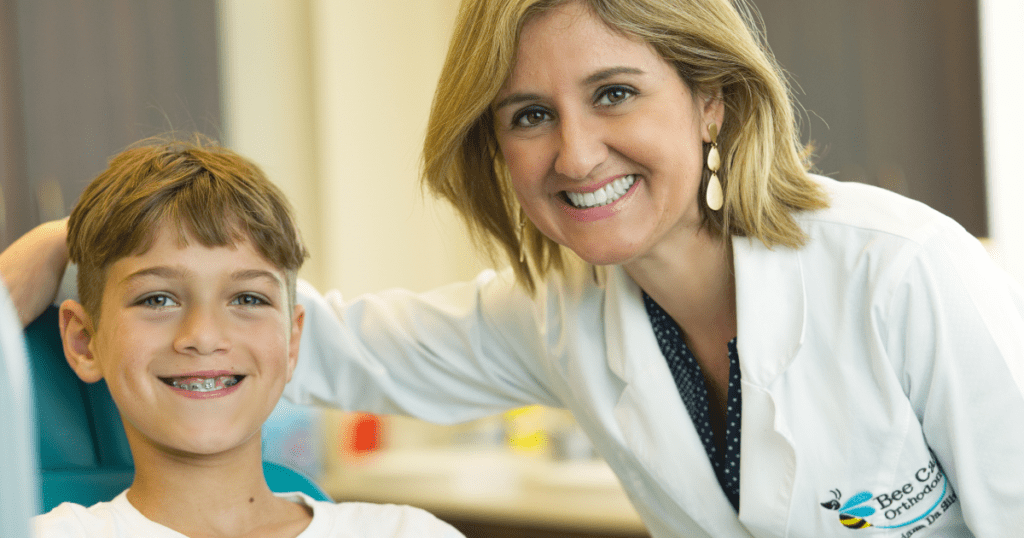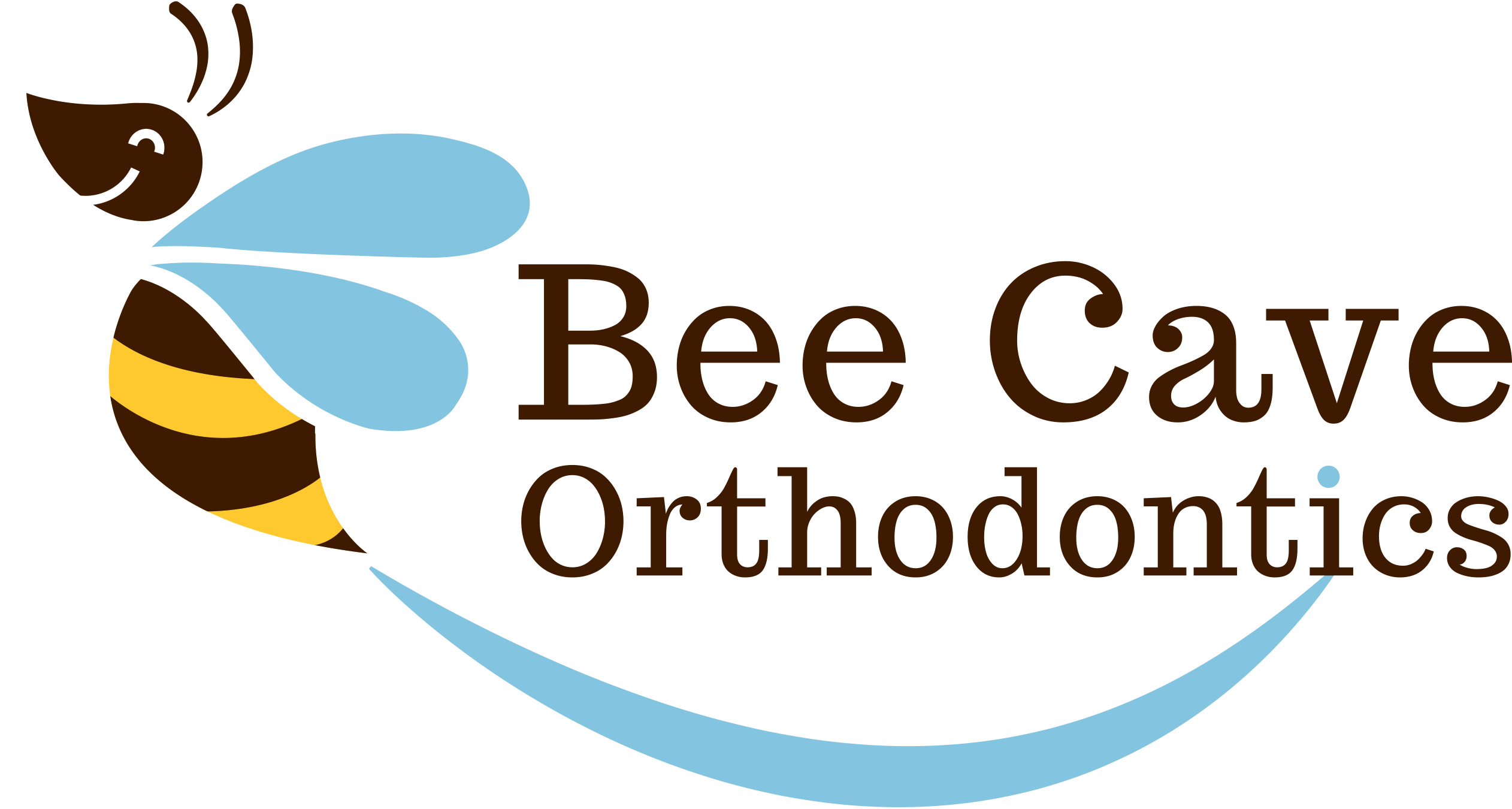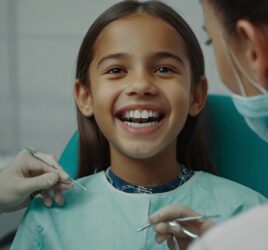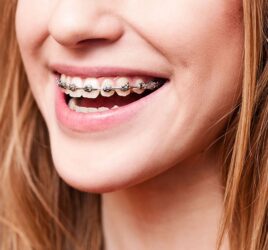Table of Contents
ToggleCan Orthodontic Treatment Help Sleep Apnea?
About 30 million people in the United States have sleep apnea, but only 6 million are diagnosed with the condition. Sleep apnea is a sleep disorder that can ultimately affect your quality of life if left untreated. Here are Bee Cave Orthodontics, we help our patients alleviate and sometimes treat their sleep disorders through orthodontic treatment so you can help sleep better at night!
What is Sleep Apnea?
Sleep Apnea is a serious sleep disorder that happens when a person’s breathing is interrupted during sleep. This causes them to stop breathing during their sleep cycle and can eventually cause long-term health issues.
With Sleep Apnea, the number of times someone can stop breathing can vary from a few times to a hundred times per night. If this sleep disorder is left untreated, sleep apnea can cause a number of health problems including: hypertension, stroke, cardiomyopathy, heart failure, diabetes and heart attacks.
Untreated sleep apnea can also be responsible for job impairment, work-related accidents and motor vehicle crashes, as well as underachievement in school in children and adolescents.
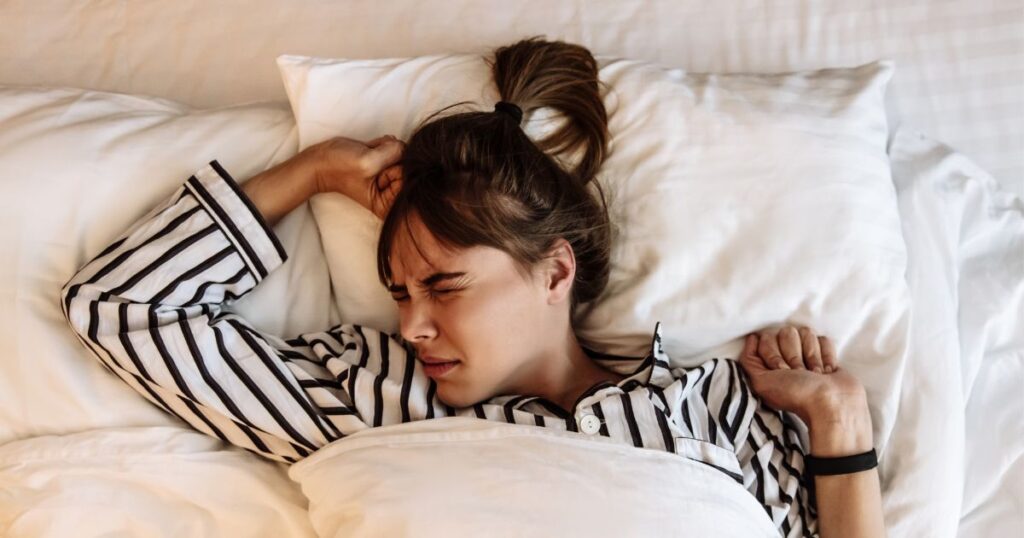
What are Symptoms of Sleep Apnea?
The number one most common symptom of sleep apnea is snoring. Many people who snore loudly or frequently might be suffering from sleep apnea to one extent or another. In some cases, some people who snore may not actually have sleep apnea.
Sleep apnea has several undesirable side effects that can affect your overall health so it’s important to catch it as early as you can. Some of these symptoms can be caught by having someone else notice these habits while you sleep.
Children with OSA can exhibit daytime behavioral problems (ADHD), learning disabilities, and inattention. At night they present noisy, labored breathing, restlessness, mouth breathing, unusual body positions, and bed wetting. OSA can also cause failure to thrive and a host of other heart and circulation issues in affected young people. Here are some symptoms to lookout for:
- Loud Snoring
- Gasping for air during sleep
- Dry mouth
- Morning headaches
- Difficulty staying asleep (insomnia)
- Excessive daytime sleepiness (hypersomnia)
- Difficulty paying attention while awake
- Irritability
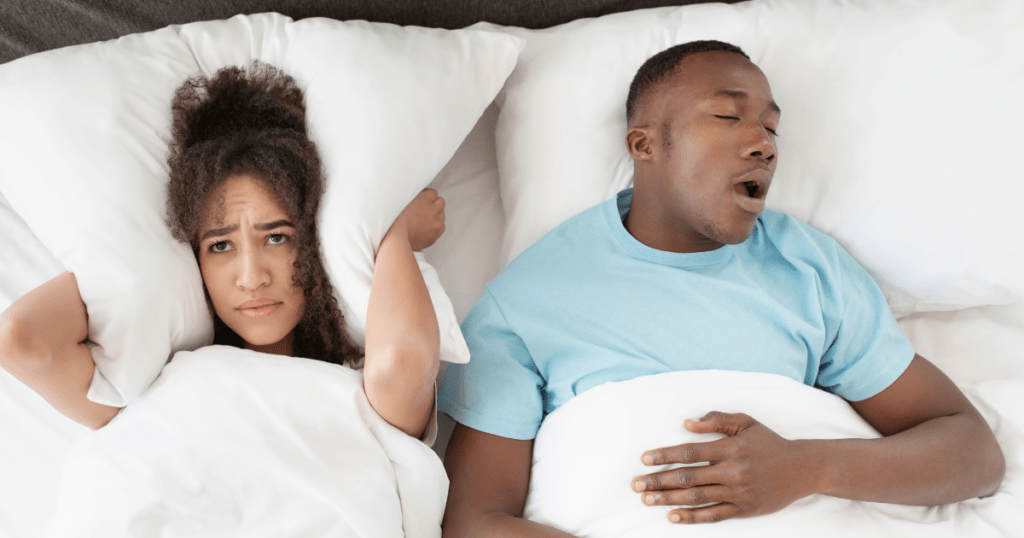
Types of Sleep Apnea
The main types of sleep apnea are:
- Obstructive Sleep Apnea: Obstructive sleep apnea happens when the airway closes or narrows as the patient breathes in. This can cause a lack of oxygen in the brain, prompting the brain to wake the person up so they can reopen their airway. When your brain senses that you aren’t getting enough oxygen, it signals your body to wake up enough so that you can reopen your airway, and you may gasp for air during the night.
- Central Sleep Apnea: Central sleep apnea is less common than obstructive sleep apnea. Unlike obstructive sleep apnea, which is caused by a mechanical problem that blocks the airway, central sleep apnea occurs because the brain is not sending the proper messages to the muscles that control breathing. This can ultimately be a neurological problem so central sleep apnea could be a bigger challenge to treat.
Complex Sleep Apnea: Complex sleep apnea syndrome Is a combination of obstructive sleep apnea and central sleep apnea. This can also be known as treatment-emergent central sleep apnea.
Obstructive Sleep Apnea Risk Factors
There are multiple reasons why people may be suffering from sleep apnea. It can affect children and adults. Factors that increase the risk obstructive sleep apnea may include:
- A narrow throat
- Excess Weight/Obesity
- Hypothyroidism
- Excess growth due to hormones (acromegaly)
- Allergies
- Deviated septum (problem with nose structure)
- Medical conditions that congest upper airways
- Smoking
- Alcohol or drug abuse
How is Sleep Apnea Diagnosed?
To officially be diagnosed with sleep apnea, you’ll need to go to a sleep specialist to do some testing. Although your dentist or orthodontist may be able to catch some signs of sleep apnea, a sleep specialist will be able to do a thorough examination. Here are the different types of tests your sleep medicine doctor would recommend to help diagnose this disorder:
Polysomnography: During this sleep study, you’re hooked up to equipment that monitors your heart, lung and brain activity, breathing patterns, arm and leg movements, and blood oxygen levels while you sleep. It is a thorough sleep study and it will be done at a facility.
Home Sleep Apnea Test: Your doctor could also provide you with an at-home version of a polysomnography to diagnose obstructive sleep apnea. This test usually involves measurement of airflow, breathing patterns and blood oxygen levels, and possibly limb movements and snoring intensity.
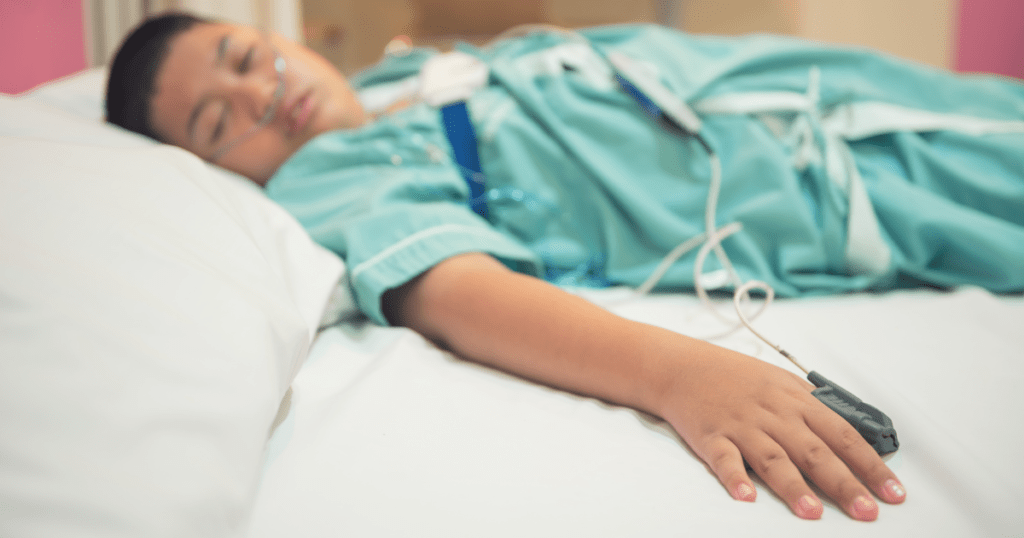
Orthodontic Issues That Can Contribute to Sleep Apnea
An orthodontic problem such as a tooth misalignment, jaw misalignment or a dental arch issue could contribute to issues that cause sleep apnea. A consultation with an experienced airway friendly orthodontist can give you options and ideas about how to treat your issues.
What is Airway Friendly Orthodontics?
Airway friendly orthodontics is orthodontic care that includes a custom treatment plan to treat and prevent future airway problems. One example is expanding the palate to create more space for the tongue. It is a form of orthodontics that is centered around breathing, not just straightening crooked teeth. Not only will we help straighten your smile, we will align your jaw in the most optimal way so you can breathe better.
The quality of your sleep is extremely important to your overall health and well-being. Not being able to fully get a good night’s sleep can have health repercussions in the long run. Here at Bee Cave Orthodontics, we can create a custom treatment plan through airway friendly orthodontics. Ask us today how you can better your life by treating sleep apnea through orthodontic treatment!
Dr Da Silveira is the chief of Orthodontics at Dell Children’s Medical Center and is involved with the airway team at Dell’s. She is knowledgeable about airway issues and can be the quarterback to assemble a team of experts to help properly diagnose and treat your sleep issues including ENT doctors, Oral Surgeons, Sleep specialists and pulmonologists.
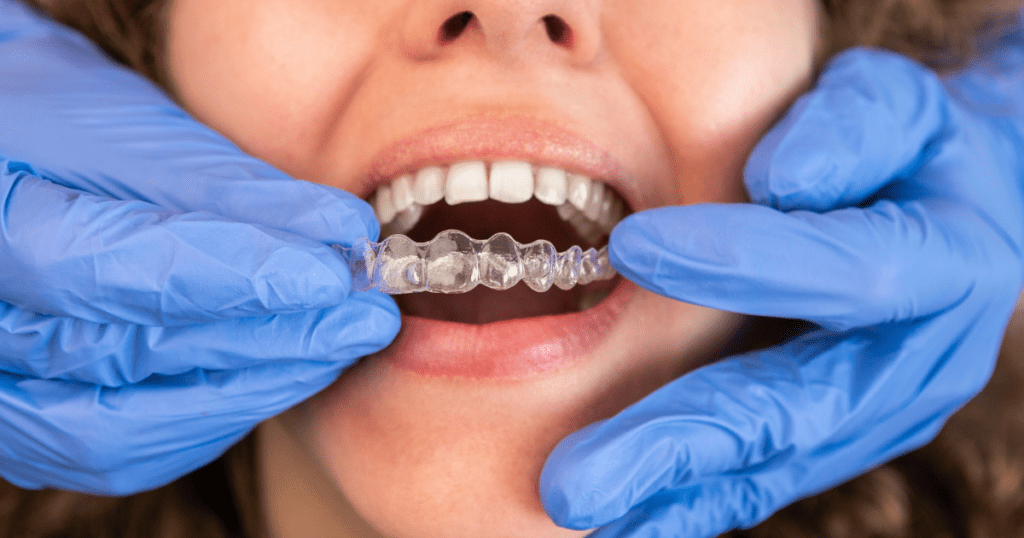
Starting Invisalign Treatment at Bee Cave Orthodontics
At Bee Cave Orthodontics, we want to give you a smile that stands out from the crowd. After all, your smile is the first thing people notice about you, and the thing they’re most likely to remember, too! That makes orthodontic treatment one of the most important investments you can make for yourself or your family, which is why you should only trust it to an experienced orthodontist like Dr. Da Silveira. Our talented team can be trusted to deliver a beautiful, healthy smile you’ll want to share with everyone around you!
If you’re in Austin, Bee Cave, Lakeway, Spicewood, Westlake, Dripping Springs or the surrounding areas, and want to learn more about how orthodontics or Invisalign treatment could benefit you and your family, get in touch with us today! Our FREE consultation makes it easier than ever to take the first step towards the smile you’ve always wanted (and deserve!)
